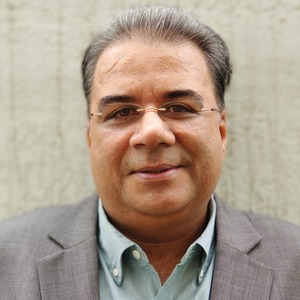Adopting Hybrid Work Model for Higher Flexibility and Productivity
 In an exclusive interview with Higher Education Review, Pankaj Khanna, EVP & Head, Revenue Assurance, & Head HR- BPS, Coforge, shares his insights on the ever-changing IT recruitment landscape, technological advancements in IT recruitment, hiring in the candidate-driven job market and more.
In an exclusive interview with Higher Education Review, Pankaj Khanna, EVP & Head, Revenue Assurance, & Head HR- BPS, Coforge, shares his insights on the ever-changing IT recruitment landscape, technological advancements in IT recruitment, hiring in the candidate-driven job market and more.
Candidates are now looking beyond monetary benefits while choosing a company and the significance of having a great work environment is rapidly increasing. How are IT companies changing their strategies to create a better work environment for their employees?
The pandemic has accelerated the transition to working from anywhere, which has offered employees more flexibility. As employees have started coming back to the office, it is very important that organizations still offer a certain level of flexibility to the employees. An obvious option is adopting a hybrid model where the employees are required to come to the office during certain days of a week. While doing this, organizations should ensure that the requirements or demands from the clients are fulfilled and it is not adversely impacted by the hybrid model. Also, during the pandemic, people were talking about rejuvenation leaves and even now, many organizations have reiterated that, it can continue if required. Over the last couple of years, the wellness aspect of working has received significant attention both from employees and organizations in the IT industry, which is a positive sign.
With attrition rates hovering around 20% in the Indian IT sector, how are IT companies changing their hiring tactics in order to address this issue?
Attrition rates in the IT industry were always significant when compared to other industries but in the last one to two years, it has spiked and many of us would have heard about the great resignation wave. While the pandemic has contributed to this rise, another important factor behind it is the fact that there are too many opportunities chasing too few a people. While attrition rates rose in the industry, some of the leading organizations have been able to position themselves just around the cusp of what could be called as concerning. At the same time, organizations have become very skeptical by the data points which are given by the candidates. To tackle this, companies are coming up with AI tools and algorithms to ensure that there is no deceitful behavior especially during online interviews. More people are starting to realize that while it is nice to work from home, coming to the office has its own perks including bonding with their team, and fostering creativity and innovation.
Companies have also started to experiment with the “hub and spoke model” of working where there will be a centralized “hub” for employees to come together. They will also be provided the choice to work from “spokes”. A spoke should not necessarily be a conventional office. It can be any place where the employee can be productive. Companies should also show more empathy as many of the new employees who have joined the IT industry during the pandemic has never had significant experience of working from the office.
Over the last couple of years, there has been an unprecedented demand for tech talent and the gap in demand and supply has inevitably tipped the scales in favor of candidates. In this candidate-driven job market, what are some of the strategies used by IT companies to attract/hire the best candidates?
The talent market is the king now and the talent can decide where to go. Employees have myriad of options to choose from which has increased the competition for talent in the IT industry. Companies should make the consistency of growth opportunities clear and visible to the employees. At Coforge, we pride ourselves in the fact that in the last 16 to 20 quarters, we have had steady industry-leading growth which gave a lot of development opportunities for our employees across all levels.
With Gen Zers entering the job market, what are some of the major changes IT companies are adopting to welcome this workforce and what would be your advice to them with regard to building a successful career in the IT industry?
It boils down to what is applicable in this era and what this generation is exposed to. Now, talented candidates are looking for more excitement and not just compensation because they have plenty of options to choose from. They are looking for what makes sense in terms of their own life goals. Organizations should understand what their life goals are and engage with the team constantly to know what they want. After understanding this, the IT industry as a whole should try to provide it.
What are some of the major hiring trends that you foresee happening in the IT industry?
Some of the trends like hiring from the campuses, training them and upgrading them will continue in the coming years. At the same time, the IT industry will start to become more spread out when it comes to hiring new talent. While previously, it was common to go to engineering or science colleges for hiring, more IT companies have started to realize that talent shaping really happens at the bottom of the pyramid. Because of this, more people will be hired from colleges providing higher education in multiple streams. In the next few quarters, there will also be a definite shift towards hiring experts and building teams around them.

